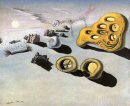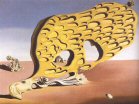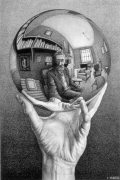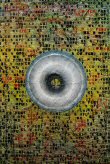In 1964 Marshall McLuhan said: “Having extended or translated our central nervous system into the electromagnetic technology, it is but a further stage to transfer our consciousness to the computer world as well” (Marshall McLuhan, Understanding Media, MIT Press, Cambridge, 1994).
Hans Moravec took him in earnest, stating that the mind’s contents could be copied on a mechanical support – and who knows, perhaps even transplanted as any other organ. The technological dream of transcending the body is a revival of separation of the “impure” body and the “divine” mind, shared both by Christianity and the Cartesian science.
But our identification with the mind could be challenged in the very moment when the mind could be copied, reproduced and shared between people.
[/en][it]
Marshall McLuhan nel 1964 affermava: “Avendo esteso o tradotto il nostro sistema nervoso centrale nella tecnologia elettromagnetica basta un solo passo per trasferire anche la nostra coscienza nel mondo del cervello elettronico”. (Marshall McLuhan. Gli strumenti del comunicare. Mondadori. Milano. 1990)
Qualcuno come Hans Moravec lo ha preso sul serio, affermando che i contenuti della mente potranno essere copiati su un supporto meccanico, e chissà magari anche trapiantati come qualsiasi altro organo. Il sogno di trascendenza del corpo in veste tecnologica è un rigurgito della visione religiosa/illuministica di separazione del corpo “impuro” dalla mente “divina”.
Ma la nostra identificazione con la mente potrebbe venire messa a rischio proprio nel momento in cui la mente potrà essere copiata, riprodotta e scambiata tra le persone.
[/it]
Leggi tutto “Downloading our mind”









